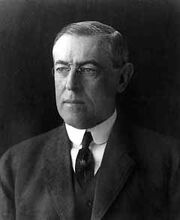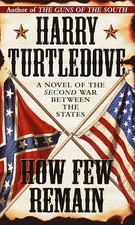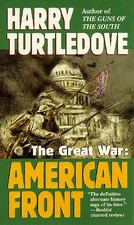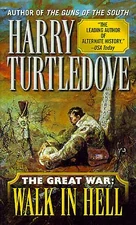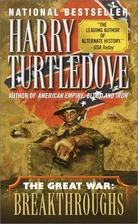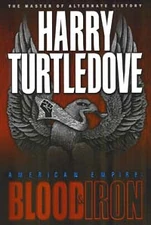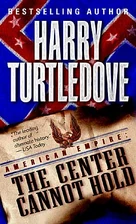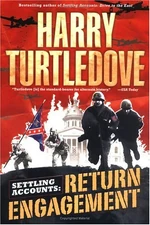| ||||||||||||||||||||||||||||||||||||
Thomas Woodrow Wilson (December 28, 1856 — February 3, 1924), was the 28th President of the United States. A leading intellectual of the Progressive Era, he was elected on the Democratic ticket in 1912, defeating incumbent President William Howard Taft (Republican) and former President Theodore Roosevelt (Progressive "Bull Moose," a Republican breakaway faction) in a 3-way race. He proved highly successful in leading a Democratic Congress to pass major legislation. He was narrowly re-elected over Republican opponent Charles Evans Hughes in 1916, and his second term centered on World War I, as he asked for a declaration of war against Germany in 1917.
After the war, Wilson developed a plan known as the Fourteen Points, which he hoped would prevent another conflict on the scale of the late World War. However, Wilson's declining health and his unwillingness to compromise with his political rivals insured that his plans would never be implemented domestically. Moreover, his hope that the United States would henceforth be a global defender of democratic principles abroad, and that colonialism would decline, was met with condescension from the country's foreign allies.
Woodrow Wilson in Southern Victory
Woodrow Wilson served as the ninth President of the Confederate States from 1910 to 1916, and led the country at the beginning of the Great War.
When Archduke Franz Ferdinand was assassinated in 1914, President Wilson affirmed the CSA's commitment to the Quadruple Entente, describing the conflict between Austria-Hungary and Serbia as a case of oppression of a smaller nation by a larger one.[1] In his speech rallying the nation to war, Wilson reminded the Confederate people of the importance of the United Kingdom and France to the CSA's birth and continued survival. He called upon the C.S. to stand with its allies against the "tyrannical" Germany and the "bitter" United States, reminding the crowd that the U.S. had followed a "dark" path, and that it was the CSA's duty to be a continuing source of freedom for the world by entering the war.[2]
Wilson clung to his idealistic view of the war for the remainder of his term. He sincerely believed that the Entente and the CS in particular represented "civilization" and "progressivism" against "oppression", a view he shared with Anne Colleton during an impromptu visit to her plantation, Marshlands. He was pained by the price in lives such a defense needed, but paid it readily.[3]
By the middle of 1915, the Great War, expected to be over by the previous Christmas, had settled into a bloody stalemate all over the globe. With a few months before the C.S. presidential elections, Wilson was now a lame-duck. He continued to rally the Confederate people, but he also began campaigning for his Vice President, Gabriel Semmes, the Whig presidential candidate.[4] By this time, certain quarters were of the opinion that Wilson had not prosecuted the war as vigorously as he could have. Doroteo Arango, the Radical Liberal candidate running against Semmes, made a more aggressive stance part of his platform.
Wilson left office in 1916, with Semmes succeeding him. In mid-1917, just over a year after Wilson left office, the Great War ended with the CSA's defeat. Wilson had retired to relative obscurity. After he died in 1924, he was buried in Richmond, and remembered with a certain fondness by later generations of the C.S.[5]
Trivia
Wilson was a staunch temperance man. At the christening of the ship CSS Fort Sumter in 1915, Wilson made a point of telling the crowd that the champagne bottle he broke against the ship's hull was filled not with champagne, but soda water.[6]
Literary Comment
Turtledove has stated that he "borrowed" the idea of Theodore Roosevelt and Woodrow Wilson simultaneously leading two different North American republics in 1914 from the 1960 novella If the South Had Won the Civil War by MacKinlay Kantor. This idea was not original to Kantor, however, as it had been used in the 1931 short story "If Lee had NOT won the Battle of Gettysburg" by Winston Churchill, who in turn becomes a minor character in the Southern Victory Series.
See Also
- References to Historical Figures in Turtledove's Work#Woodrow Wilson, for more minor references to Wilson in Turtledove's work.
- Theodore Roosevelt, 26th President of the United States in OTL. He was also a rival of Wilson's, running against Wilson in the convoluted election of 1912. In the Southern Victory series, Roosevelt is the 28th US President, serving from 1913-1921 as Wilson did.
References
- ↑ American Front, pg. 15.
- ↑ Ibid., pg. 34-35.
- ↑ Ibid., pg. 73-74.
- ↑ Ibid. pg, 476.
- ↑ In at the Death, pg. 209
- ↑ American Front, pg. 556.
| Titles and Succession | |||||||||||||||||||||||||||
|---|---|---|---|---|---|---|---|---|---|---|---|---|---|---|---|---|---|---|---|---|---|---|---|---|---|---|---|
| |||||||||||||||||||||||||||
